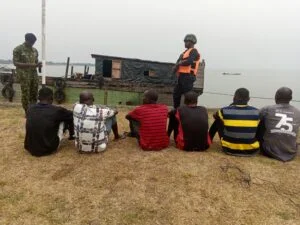Health
Nigeria Records 221 New COVID-19 Cases, Lowest in Three Months

The Nigeria Center for Disease Control (NCDC) has announced 221 new cases of Coronavirus (COVID-19) pandemic outbreak in the country.
The NCDC made this known on its official twitter handle on Wednesday.
The 221 new cases was the lowest number of cases recorded in the country in about three months.
It recalls that on Aug.
4, Nigeria reported 288 COVID-19 new cases and 290 one week later, while another low figure of 252 was recorded on Aug. 25.NCDC said that there were more persons who died of COVID-19 related complications in the country in the last 24 hours with the national death toll rising to 1,010.
The NCDC said that the number of recovery crossed the 40,000 mark after 317 more people were treated and discharged from isolation centres across the country.
The agency stated that this brought the total number of recovered cases in the country to 40,281, representing almost 76 per cent of the total number of confirmed infections put at 53,021.
The public health agency said that the 221 new cases were reported from 20 states.
The agency said that Plateau state reported 60, which was the highest of the day.
Among others were FCT, 33, Kaduna, 26, Rivers, 18, Lagos, 17, Enugu, 9 , Kwara, 9, Ondo, 9, Nasarawa, 6, Gombe, 5, Anambra, 5, Delta, 4, Abia, 4, Imo, 3, Edo, 2, Ogun, 2, Oyo, 2, Osun, 2, Bauchi, 1, and Kano, 1.
Meanwhile, the agency urged pregnant women and nursing mothers to protect themselves by reducing the risk of COVID-19 through frequent hand washing, disinfecting surfaces and limiting contact with others.
It stated that pregnant and nursing mothers might come in contact with infected people with no COVID-19 symptoms.
“It is important to maintain physical distancing and avoid large gatherings because you may not know who may have COVID-19,” it said.
The health agency, however urged Nigerians to take responsibility to keep themselves and their loved ones safe.
NAN reports that the Nigeria COVID-19 figures by the NCDC, on sample collection as at Aug. 25 stand thus: Lagos, 95, 843, FCT, 46,413, Kano, 42, 744, Plateau, 23, 113 and Oyo, 19,562.
The Nigeria Active Case Fact Sheet as at Aug. 25 are: FCT 3, 548, Lagos, 2, 602, Oyo, 1,289, Plateau, 988 and Imo, 326 .
Also, it said newly discharged cases as at Aug. 25 were 707 and from five states, Ondo 528, Oyo, 50, Kano, 44, Plateau, 19, and Taraba, 18.
States with double figures were Plateau, 60, FCT, 33, Kaduna, 26, Rivers, 18 and Lagos, 17. (NAN)
Health
Millions of Children Experience Daily Domestic Violence in Schools, Homes Globally – WHO
Hundreds of millions of children and adolescents around the world face daily violence in their homes, schools, and elsewhere which could have lifelong consequences.The World Health Organisation (WHO) said this on Thursday.The violence includes being hit by family members, being bullied at school, as well as physical, emotional, and sexual violence, WHO said.
In most cases, violence occurs behind closed doors. More than half of those aged two to 17 or more than a billion minors in total experience violence each year according to the WHO. In three out of five children and adolescents, it is physical violence at home, with one in five girls and one in seven boys experiencing sexual violence.Between a quarter and half of minors are affected by bullying according to the information provided.Only half of the children reportedly talk about their experiences of violence and less than 10 per cent receive help.Lifelong consequences could include depression and anxiety disorders, or tobacco and drug use.As a result, many children do not reach their learning potential in school.Against the backdrop of being highly preventable, violence remains a horrific day-to-day reality for millions of children around the world leaving scars that span generations,” said Tedros Adhanom Ghebreyesus, WHO director general.The UN’s first conference on violence against children opened in Bogota, Columbia on Thursday.At the two-day conference, more than 100 countries pledged to find ways to better support overwhelmed parents and introduce school programmes against bullying and for healthy social behaviour.They also pledged to raise the minimum age for marriage.Some countries wish to generally ban children from being hit at school or home. (dpa/NAN)Health
WHO Identifies 17 Pathogens as Top Priorities for new Vaccine Development

The World Health Organisation (WHO) has listed 17 bacteria, viruses and parasites that regularly cause disease as top priorities for new vaccine development.WHO, in a study published on Tuesday, reconfirmed long-standing priorities for vaccine research and development (R&D), including for HIV, malaria, and tuberculosis – three diseases that collectively take nearly 2.
5 million lives yearly. The study is the first global effort to systematically prioritise endemic pathogens based on their regional and global health impact. Attention is also given to pathogens such as Group A streptococcus, which causes severe infections and contributes to 280,000 deaths from rheumatic heart disease, mainly in lower-income countries.Another new priority is Klebsiella pneumoniae — a bacteria that was associated with 790,000 deaths in 2019 and is responsible for 40 per cent of neonatal deaths due to blood infection (sepsis) in low-income countries.The new study supports the goal of ensuring that everyone, everywhere, can benefit from vaccines that protect against serious diseases.It aims to shift the focus in vaccine development away from commercial returns towards regional and global health needs, WHO’s Dr Mateusz Hasso-Agopsowicz, who works in vaccine research, said in a statement.He explained that in the past, vaccine R&D typically was influenced by profitability.“As a result, diseases that severely affect low-income regions received little attention.“We hope this represents a critical shift where we want to change the focus from commercial perspective profitability of new vaccines towards the actual health burden so that the new vaccine research and development is driven by health burden and not just commercial opportunities,” he said.To carry out the study, WHO asked international and regional experts what they think is important when prioritising pathogens for vaccines R&D.Criteria included deaths, disease and socioeconomic impact, or antimicrobial resistance.“We had asked experts that have expertise in pathogen epidemiology, clinicians, paediatricians, vaccine experts from all of the WHO regions, to ensure that the list and the results that we produce really reflect the needs of diverse populations worldwide,” Hasso-Agopsowicz said.Analysis of those preferences, combined with regional data for each pathogen, resulted in the top 10 priority pathogens for each of WHO’s six regions globally.The regional lists were then consolidated to form the global list, resulting in the 17 priority endemic pathogens for which new vaccines are urgently needed.To advance vaccine R&D, WHO has categorised each pathogen based on the stage of vaccine development and the technical challenges involved in creating effective vaccines.Hasso-Agopsowicz said the study is expected to guide future vaccine R&D investments, including funders, researchers and vaccine developers, and also policymakers as they “can decide whether to introduce these vaccines into immunisation programmes.” (NAN)Health
UCH JOHESU Suspends Strike

The Joint Health Sector Unions (JOHESU), University College Hospital (UCH), Ibadan,has suspended the strike it embarked on Oct. 25.The workers resumed work on Friday morning.The seven-day nationwide warning industrial action embarked upon by the unions was to press home their demands ofadjustment of Consolidated Health Salary Structure as was done with the Consolidated Medical Salary Structure sinceJan.
2, 2014 and implementation of consultant cadre for pharmacists in federal health institutions. Others are upward review in the retirement age from 60 to 65 years for health workers and 70 years for consultants, andpayment of outstanding salaries of JOHESU members in professional regulatory councils.The UCH JOHESU Chairman, Mr Oladayo Olabampe, said that the strike was suspended as directed by the national body.He explained that “the suspension followed an MoU signed between JOHESU national leadership and Federal Government.“The Federal Government asked for a maximum of six weeks counting from Oct. 31, to meet our demands.“Based on the MoU signed, the JOHESU National Executive Council met and resolved that the strike be suspended on Fridaynationwide.”According to him, JOHESU UCH is obeying the order, and workers have resumed work.Olabampe said that if the demands were not met after the six weeks, they would embark on an indefinite strike. (NAN)



























